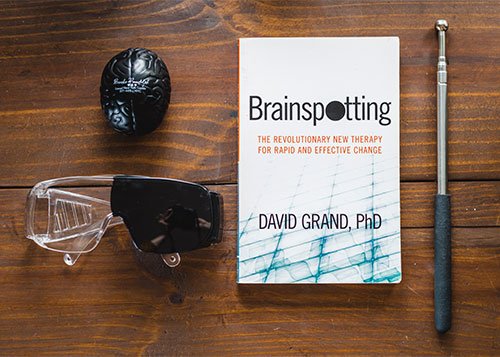Brainspotting
What is it? Brainspotting is based on “Where you look affects how you feel.” It is a powerful mind/body therapy that has rapid effects. We see with our eyes and our brains. Brainspotting helps the client work with deep focused mindfulness and fixed eye positions to process and release emotionally and bodily-based conditions such as PTSD, phobias, trauma, relationship and performance issues. It is also helpful for expanding the body reservoir of vitality and opening to a new awareness for enhancing life and improving performance.
Could it help me? Brainspotting is a useful technique for you if you have worked on yourself for a while and feel you still can’t shift something that is holding you stuck. Brainspotting is often done with BioLateral Sound which is calming and enhances results.
When we go through a trauma in life, we naturally react with fight, flight or freeze. When we freeze –a connection of the feelings we had at the time of trauma and a feeling in our body occurs. That stuck-frozen feeling becomes formatted within us and re-occurs when we encounter similar situations with new challenges. Often to create a new way of approaching life more harmoniously—we need to complete the movement that did not happen in the original trauma.
Brainspotting allows your body to release the stress that it learned in the past. This focused attention on a situation seems to trigger deep in our brain the area that contains unprocessed memory and feeling. It appears to tap into our own body’s innate wisdom to heal. It has the potential to unlock the circular thinking, negative thoughts, self-protective patterns and limited beliefs we continuously act from even when we don’t want to.
Applications of Brainspotting
• Physical and emotional trauma
• Anxiety
• Depression
• PTSD
• Recovery from injury and accident trauma
• Trauma resulting from medical interventions and treatment
• Stress and trauma-related medical illness
• Sports Performance and Creativity Enhancement
• Fibromyalgia and other chronic pain conditions
• Addictions (especially cravings)
• Perceptual problems
• Stuttering
• Environmental Illness and Chronic Fatigue Syndrome
• Phobias
• Asthma
• Preparation and recovery from surgery
• Trauma resulting from war and natural disasters

